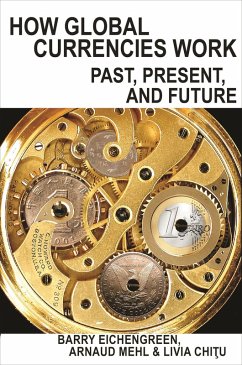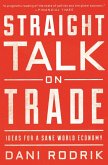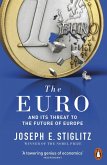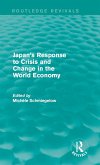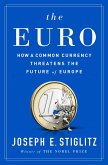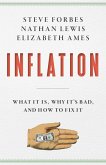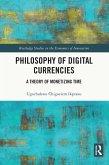A powerful new understanding of global currency trends, including the rise of the Chinese yuan
At first glance, the modern history of the global economic system seems to support the long-held view that the leading world power's currency-the British pound, the U.S. dollar, and perhaps someday the Chinese yuan-invariably dominates international trade and finance. In How Global Currencies Work, three noted economists provide a reassessment of this history and the theories behind the conventional wisdom.
Offering a new history of global finance over the past two centuries, and marshaling extensive new data to test established theories of how global currencies work, Barry Eichengreen, Arnaud Mehl, and Livia Chit¿u argue for a new view, in which several national monies can share international currency status, and their importance can change rapidly. They demonstrate how changes in technology and in the structure of international trade and finance have reshaped the landscape of international currencies so that several international financial standards can coexist. They show that multiple international and reserve currencies have in fact coexisted in the pastupending the traditional view of the British pound's dominance prior to 1945 and the U.S. dollar's dominance more recently.
Looking forward, the book tackles the implications of this new framework for major questions facing the future of the international monetary system, from whether the euro and the Chinese yuan might address their respective challenges and perhaps rival the dollar, to how increased currency competition might affect global financial stability.
At first glance, the modern history of the global economic system seems to support the long-held view that the leading world power's currency-the British pound, the U.S. dollar, and perhaps someday the Chinese yuan-invariably dominates international trade and finance. In How Global Currencies Work, three noted economists provide a reassessment of this history and the theories behind the conventional wisdom.
Offering a new history of global finance over the past two centuries, and marshaling extensive new data to test established theories of how global currencies work, Barry Eichengreen, Arnaud Mehl, and Livia Chit¿u argue for a new view, in which several national monies can share international currency status, and their importance can change rapidly. They demonstrate how changes in technology and in the structure of international trade and finance have reshaped the landscape of international currencies so that several international financial standards can coexist. They show that multiple international and reserve currencies have in fact coexisted in the pastupending the traditional view of the British pound's dominance prior to 1945 and the U.S. dollar's dominance more recently.
Looking forward, the book tackles the implications of this new framework for major questions facing the future of the international monetary system, from whether the euro and the Chinese yuan might address their respective challenges and perhaps rival the dollar, to how increased currency competition might affect global financial stability.
Dieser Download kann aus rechtlichen Gründen nur mit Rechnungsadresse in A, D ausgeliefert werden.

Kritik am Konzept der Hegemonialwährung
Eine traditionelle Form der Geschichtsschreibung geht so: Vom 19. Jahrhundert bis in die erste Hälfte des 20. Jahrhunderts hinein war das Pfund Sterling die wichtigste Währung der Welt, weil das Britische Weltreich in politischer und wirtschaftlicher Hinsicht die Welt dominierte und der Finanzplatz London schon damals der am weitesten entwickelte Finanzplatz der Welt war. Das erhebliche Vertrauen in das Pfund lässt sich auch an der Tatsache erkennen, dass Großbritannien innerhalb des Goldstandards nur sehr wenig Gold halten musste und gleichzeitig die wichtigste Währung besaß.
Die Herrschaft des Pfunds ging mit den Weltkriegen und dem politischen, militärischen und wirtschaftlichen Aufschwung der Vereinigten Staaten zu Ende. Seitdem dominiert der Dollar die internationalen Ströme und weite Teile der Weltwirtschaft. In einer aktuellen Arbeit zeigt die Harvard-Ökonomin Gita Gopinath empirisch, wie sich Änderungen des Dollar-Wechselkurses auf die Handelsströme in der gesamten Welt auswirken. Nach dieser traditionellen Sicht könnte der Dollar eines Tages vom Yuan (Renminbi) abgelöst werden, sobald China die Vereinigten Staaten als Führungsmacht in der Welt abgelöst hat.
Diese traditionelle Sicht ist verbreitet. Aber sie ist, jedenfalls nach Auffassung des bekannten Ökonomen und Währungshistorikers Barry Eichengreen, falsch. Eichengreen versucht in einem zusammen mit zwei Mitarbeitern verfassten Buch zu zeigen, dass sich die traditionelle Sicht weder auf ein schlüssiges theoretisches noch auf ein überzeugendes empirisches Fundament stützen lässt. Eichengreen bestreitet zum einen, dass in der Hochzeit des Britischen Weltreichs das Pfund tatsächlich die Währungswelt überragt hatte. Und er hält es für denkbar, dass sich im Laufe der Zeit neben dem Dollar eine kleine Zahl anderer Währungen etablieren kann, die zusammen mit der amerikanischen Währung die internationalen Finanzmärkte dominieren werden.
gb.
Barry Eichengreen, Arnaud Mehl & Livia Chitu: How Global Currencies Work. Princeton University Press. Princeton 2017. 250 Seiten. 32,95 Dollar
Alle Rechte vorbehalten. © F.A.Z. GmbH, Frankfurt am Main
"This book will come to be known as the one that challenged the old, winner-takes-all view of international currency competition and established the new view. Barry Eichengreen and his coauthors present thorough and telling evidence that the historical reality is that multiple currencies play consequential roles in international trade and finance--and that lock-in effects and persistence are not as strong as traditionally assumed. In short, this a must-read for all economists interested in international macroeconomics and finance."--Richard Baldwin, Graduate Institute of International and Development Studies, Geneva

